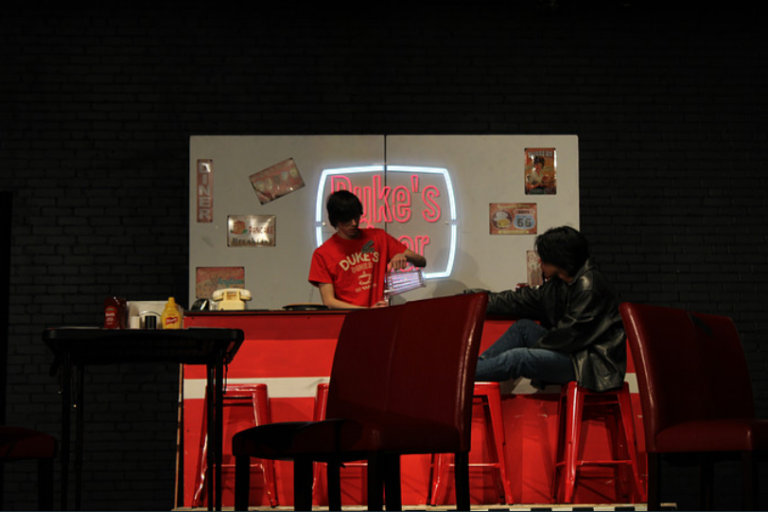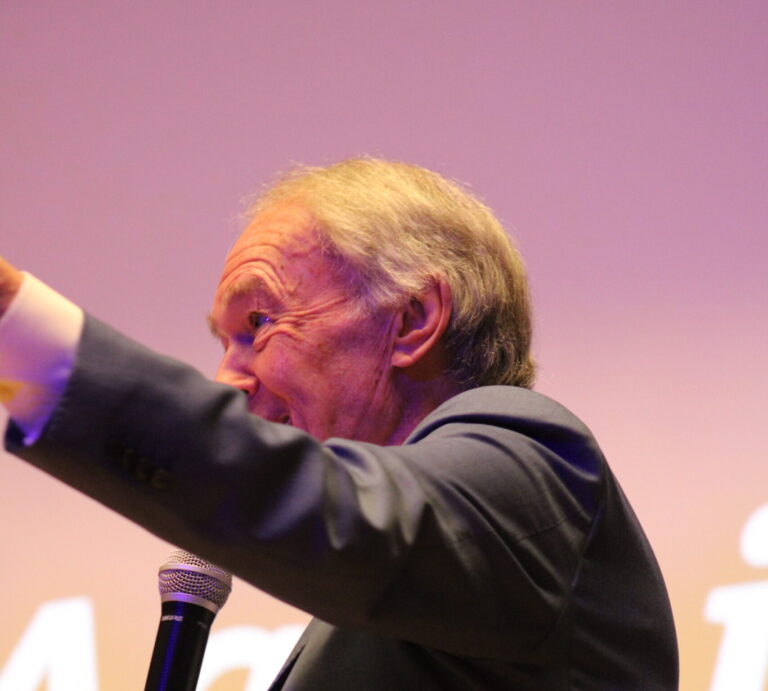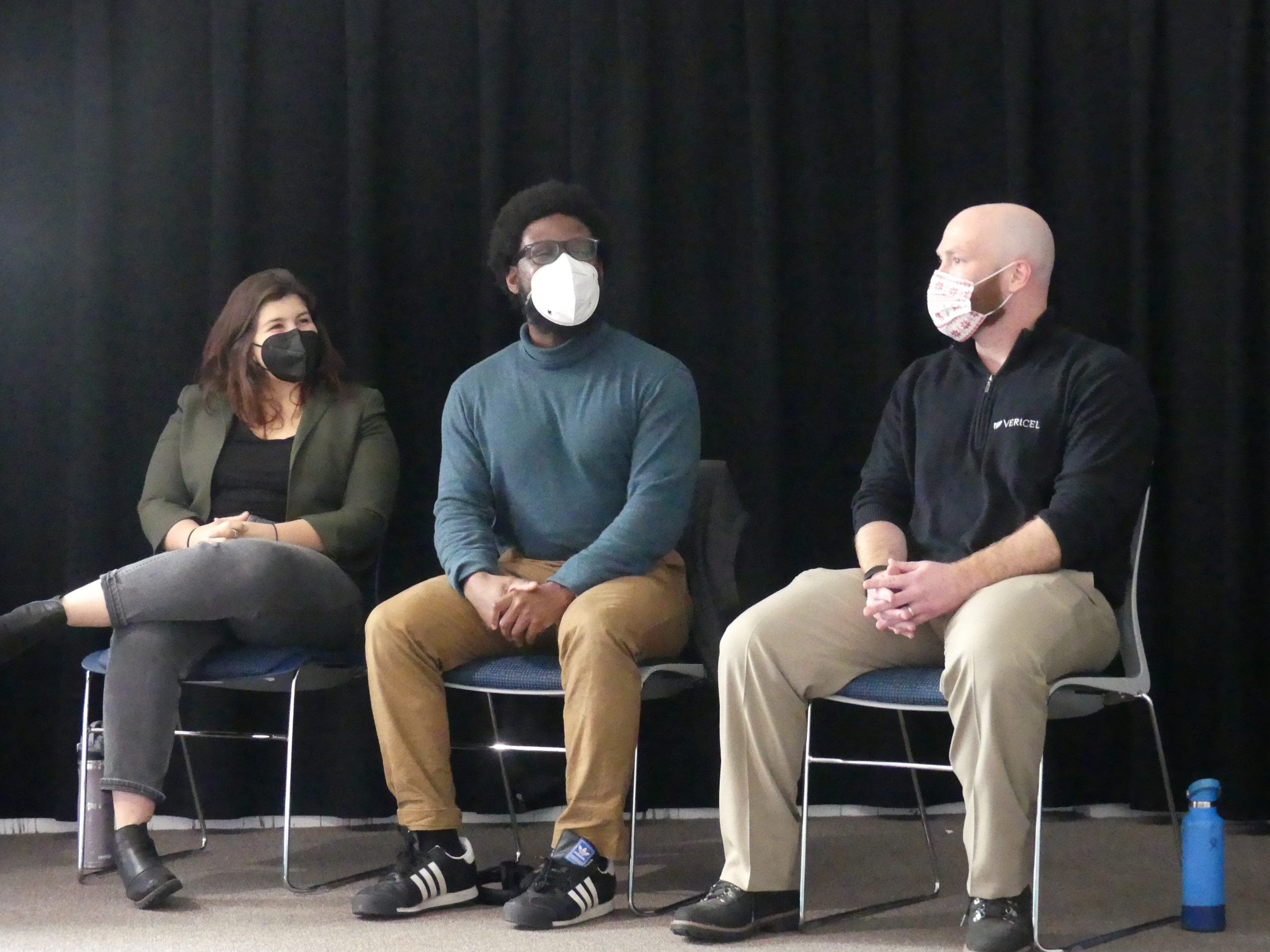
The guest speakers inform the high school students on civic leadership. Photo by Chaimaa Assli.
Tufts University sponsored the Youth Civic Leadership Conference for high school students from all over Massachusetts to learn more about civic leadership. This event was held on Saturday, December 4th from 10 AM to 4:30 PM in the multi-purpose Curtis room on the Tufts campus.
The conference started off by participating in an action civics workshop to learn about civics, government and advocacy. Guest speakers Danielle Mulligan, Danny McLaughlin and Willie Burnley Jr. were there to inform students about the topic.
From there, the youth leaders broke off into groups to create action projects addressing community issues ranging from homelessness to voting rights, and they would later present these projects in front of their peers and community members.
The event was advertised as a “fun and engaging day of working with civically-minded peers and learning how to be a civic leader.”
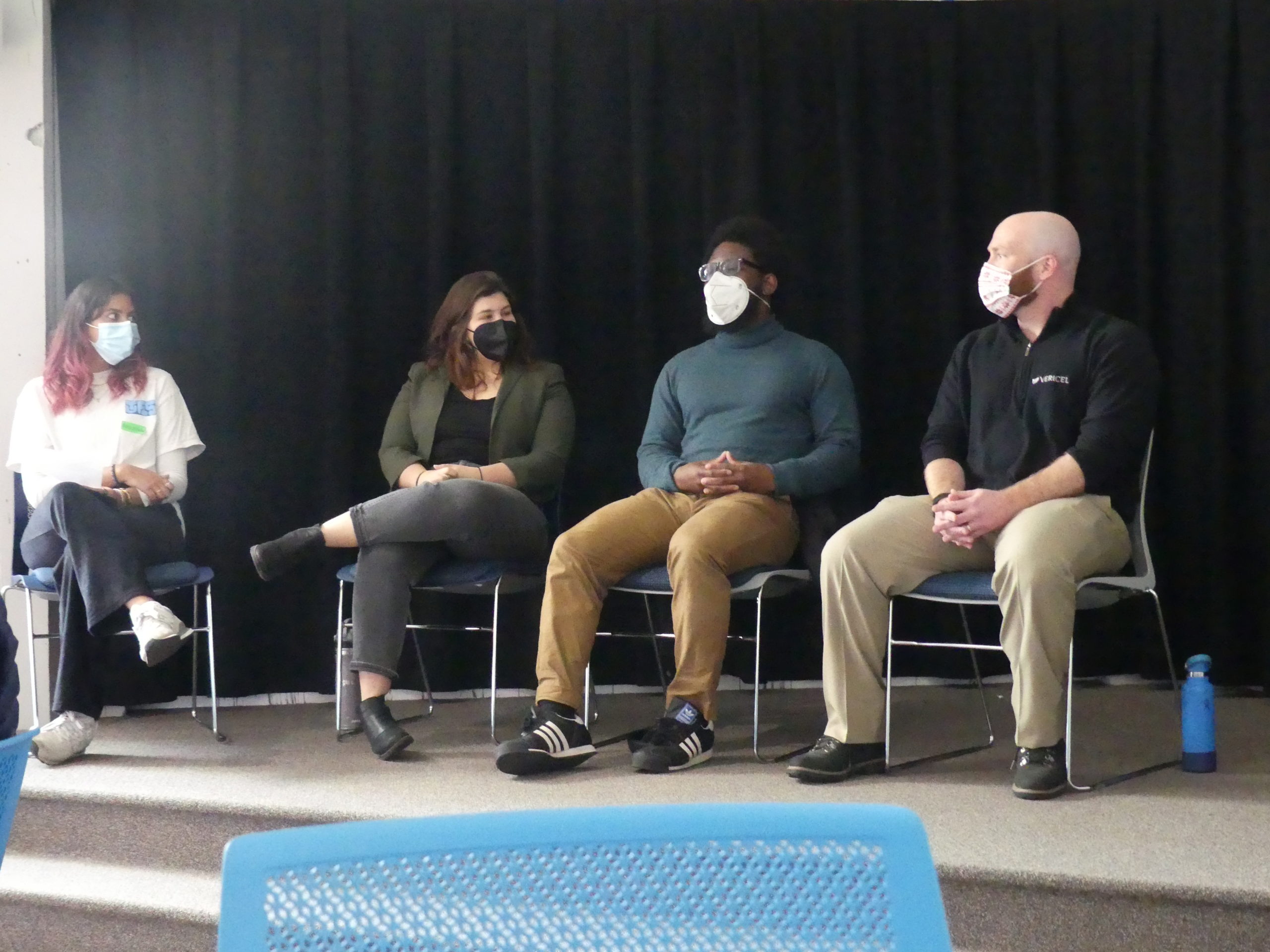
Students from Tufts gave a presentation to open up the event. They talked about topics such as the legislative approach, electoral approach and the grassroots approach. They also discussed different ways to make a change in a community such as non-systematic and systematic change. “Follow your passions around being a part of the community,” Burnley advised students. He sees how much student voice is being left out and wants that to change. He believes that it is important that students “find a cause and also the space that is supporting [them] and the practice.”
McLaughlin said that the way he prioritizes issues is that he tries to look at the themes of the issues that young people have and see which ones should be prioritized. McLaughlin likes “seeing young people civically engaged,” and he wants people to find ways to come together and respect each other’s perspectives.
Mulligan “sees which issue ignites,” and starts off local with the youth problems. She said that “there might be fewer resources but it could be more accessible.” “Make sure you keep having conversations with the local government,” said Mulligan. She believes that students should always start off in their city or their neighborhood because it is a platform that they “have and deserve to step into to make the community better.”
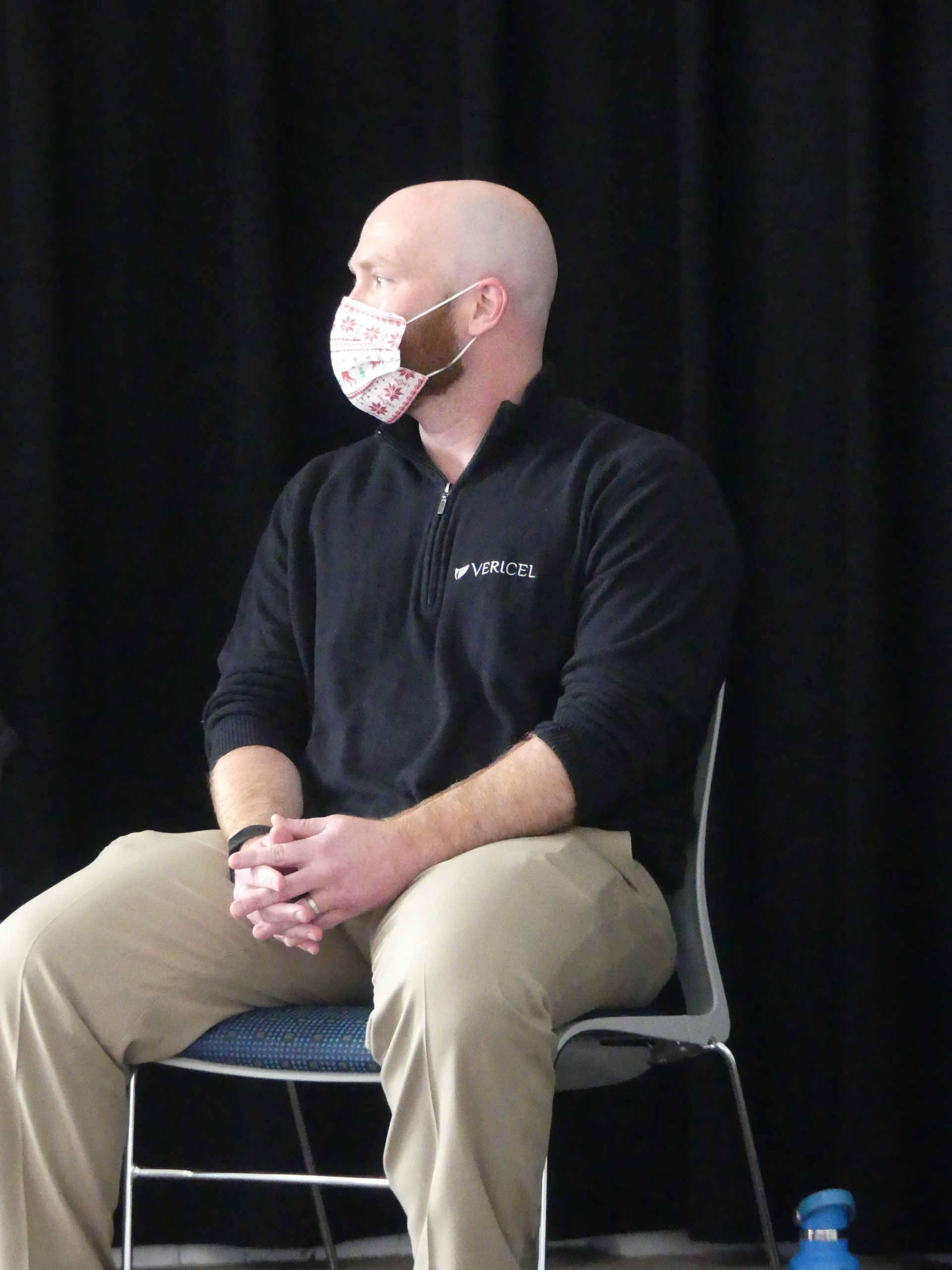
Danny McLaughlin, one of the guest speakers. Photo by Chaimaa Assli. 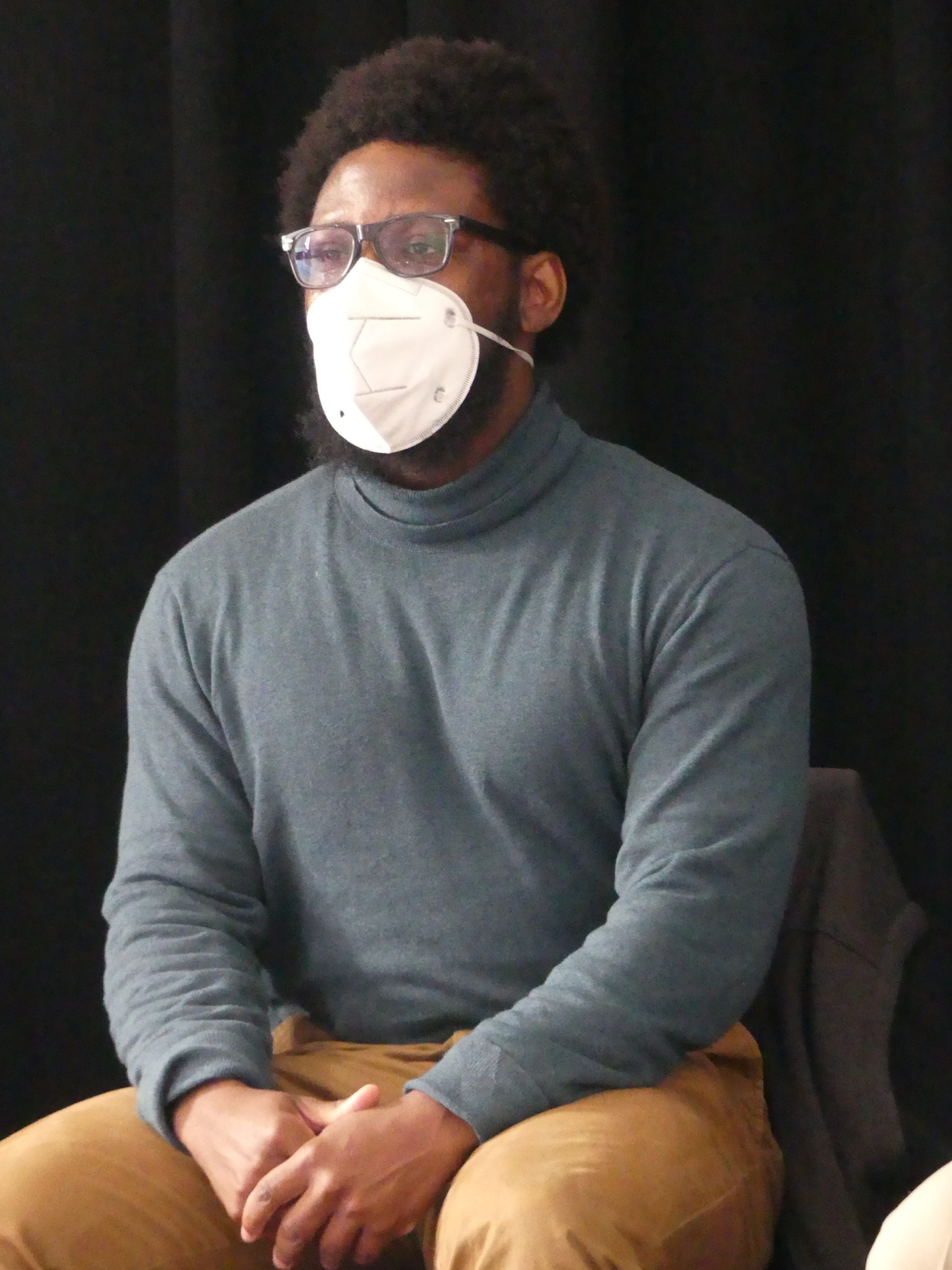
Willie Burley Jr, one of the guest speakers. Photo by Chaimaa Assli. 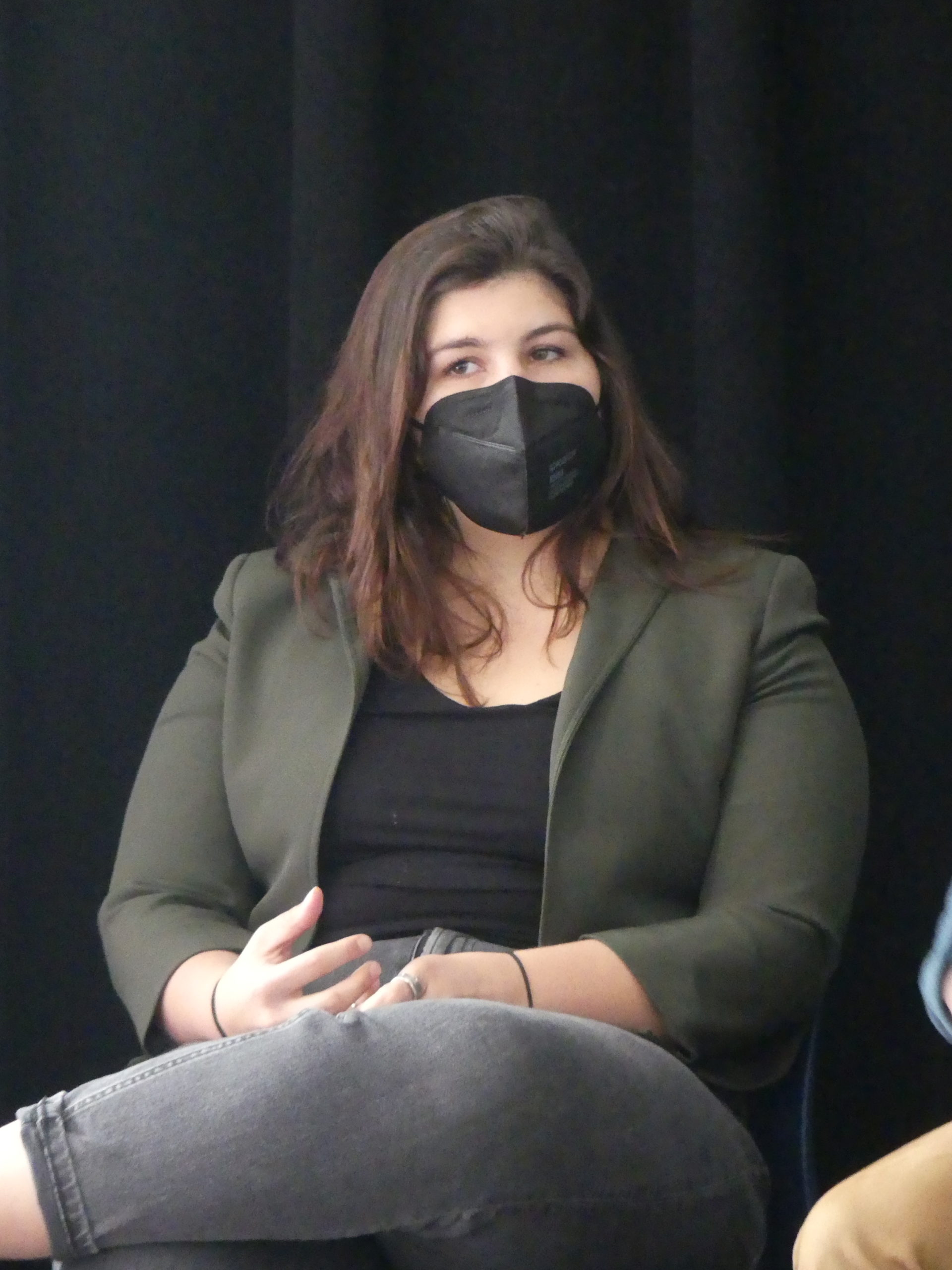
Danielle Mulligan, one of the guest speakers that spoke at the conference. Photo by Chaimaa Assli.
After the guest speakers introduced themselves and answered questions the students attending had, everyone was given pizza for the lunch break. When lunch was over, the students broke off into four different groups for their project topics. The four topics they got to choose from were racial equity, sustainability, voting rights and homelessness. Each of the groups presented their given topic to everyone attending. The event was closed off with a reflection and a closing statement.


